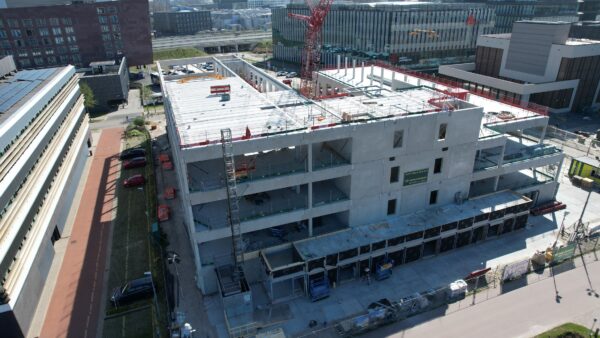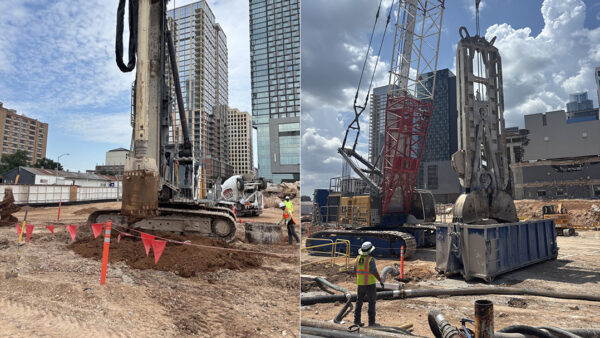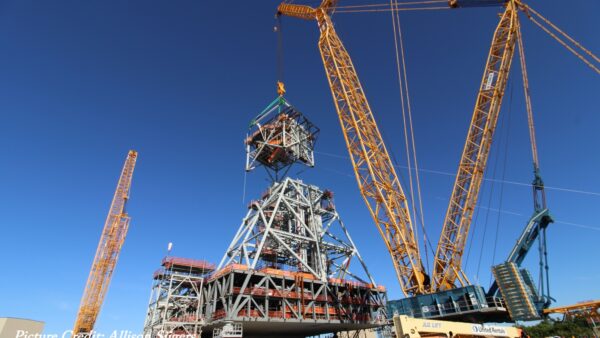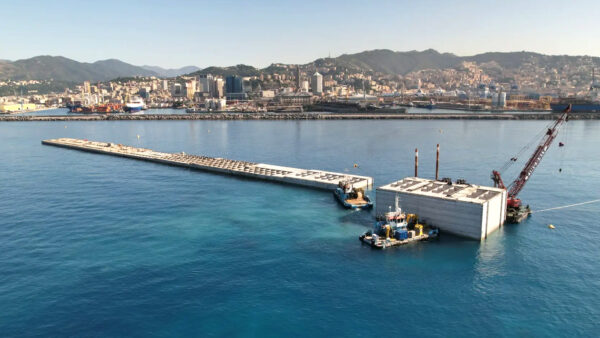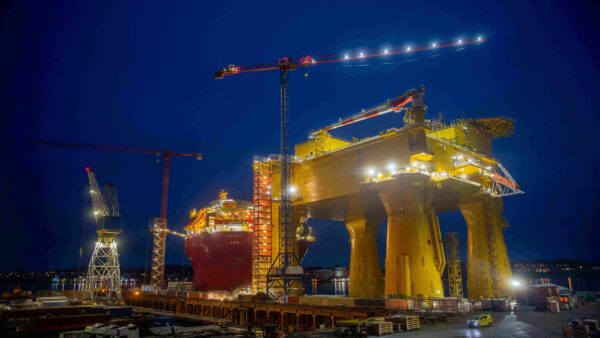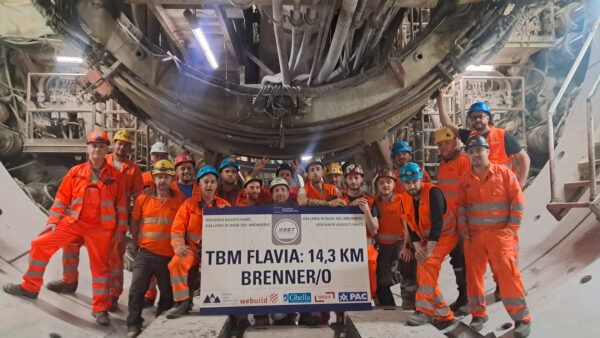5 February 2013
The Olympics are supposed to be filled with desperate races against time, but few are quite so desperate as that faced by the Russian hosts of the Sochi games.
Three days before the opening ceremony, some areas of the Olympic zone are still construction sites. And as these include the apartment complexes where journalists are to sleep, the organisers have guaranteed themselves a lavish helping of negative publicity.
On Monday, the Sochi authorities said 97% of rooms were finished and the remaining 3% were getting a final cleaning.
However, when the first of 11,000 jet-lagged journalists who arrived the following day, they found that some rooms had heating that could not be turned on, others had heating that could not be turned off, others were “permeated with the odour of industrial glue” and had beds recently slept in by construction workers.
Some were kept awake all night by pounding techno music.
Predictably, a flood of images began appearing on social media sites. This picture of communal toilet facilities travelled round the world and back, and pictures of half-finished hotel rooms began appearing in countless blog posts.
The organisers admitted on Saturday that only six of the nine media hotels were finished. However, Mark Adams, a spokesperson for the International Olympic Committee, said: “That doesn’t mean they’re empty shells with no beds or whatever.”
He added that 20,000 rooms had been constructed and “not a single person has gone without a room”.
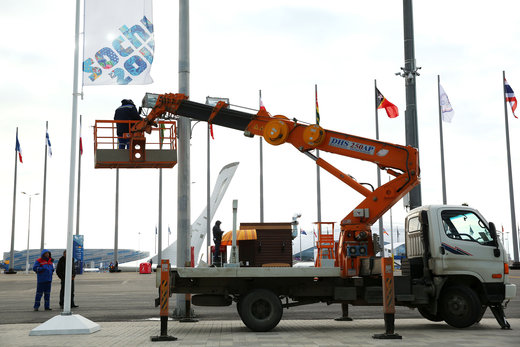
Last-minute construction in Sochi (Quinn Rooney/Getty Images)
Most of the games’ infrastructure has been completed. The athletes and volunteer workers will not encounter any of the problems faced by reporters; the sporting venues are completed – apart from some concerns about the safety of the snowboarding course – and the new airport and train station are ready.
However, outside the main venues workers are labouring to complete the non-essential areas.
An anonymous Russian official told the Vedomosti newspaper yesterday that the Kremlin had decided to “search for those who are guilty” once the games were over.
However, one culprit has already been identified: responsibility for the delays in the completion of apartment for Olympic volunteers has been fixed on the RZT-Stroi subsidiary of Russian Railways.
Vedomosti reported that the firm has been fined $300m for failing to complete 3,500 apartment buildings in Sochi and nearby Khosta.
According to an anonymous source, RZT completed only 1,300 apartments by its deadline, and Olimpstroi, the state Olympic contractor, had to take over work on the remaining 2,200 units. In the event they were completed in time for the games.
The main story about these winter Olympics remains the extraordinary cost of them: $51 billion. This makes them the most expensive games in history, $10bn more than the Beijing summer Olympics and, according to a Dutch newspaper, greater than the combined cost of every other winter Olympics in history.
Stories have long been circulating in the world’s press about awe-inspiring scale of the corruption, not to mention the intimidation of journalists and internal critics of the expense.
Then there are the security arrangements: Sochi is in the northern Caucasus, which is still a volatile region, and the threat of a terrorist attack is being met by the deployment of 40,000 troops.
Ivan Nechepurenko, a reporter for the Moscow Times newspaper, was quoted as saying “They have built temporary barracks all around the Olympic park, and everything is surrounded by fences, double and triple fences, with lots of security cameras.”
Despite the flood of hostile reports, especially in the American press, the Games will leave the city of Sochi, which has a population of 350,000 with state-of-the-art infrastructure and impressive facilities for future generations of winter sports enthusiasts.
As for concerns over the comfort of journalists, that is more of an embarrassment than a disaster.

